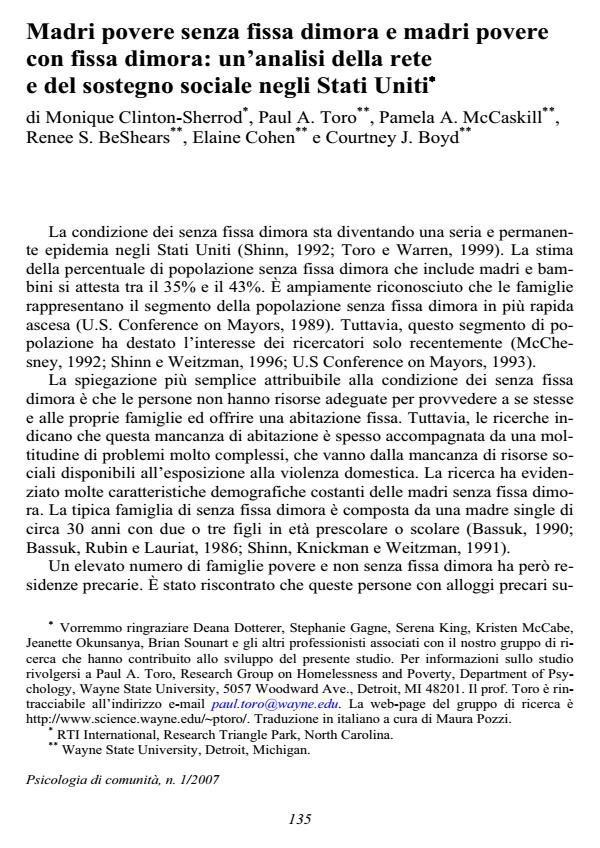Madri povere senza fissa dimora e madri povere con fissa dimora: un'analisi della rete e del sostegno sociale negli Stati Uniti
Journal title PSICOLOGIA DI COMUNITA’
Author/s Monique Clinton-Sherrod, Paul A. Toro, Pamela A. McCaskill, Renee S. BeShears, Elaine Cohen, Courtney J. Boyd
Publishing Year 2007 Issue 2007/1
Language Italian Pages 24 P. 135-158 File size 115 KB
DOI
DOI is like a bar code for intellectual property: to have more infomation
click here
Below, you can see the article first page
If you want to buy this article in PDF format, you can do it, following the instructions to buy download credits

FrancoAngeli is member of Publishers International Linking Association, Inc (PILA), a not-for-profit association which run the CrossRef service enabling links to and from online scholarly content.
A comparison sample of 55 poor housed mothers (mostly from food programs) was matched to the homeless sample on several sociodemographic variables. Although the two groups of mothers were similar on most social network/support and other measures, the homeless mothers had weaker friends’ networks. In regression analyses examining predictors of social networks and support in the total group of 132 mothers, those with higher income from public assistance, who had lived in better quality housing environments over the past year, and not having a severe mental disorder had better scores on more than one of the four key social network/support measures examined. Other predictors of network/support included the mother’s age, the level of punishment she experienced as a child, and recent family conflict. Keywords: homeless, homeless families, social networks, social support
Monique Clinton-Sherrod, Paul A. Toro, Pamela A. McCaskill, Renee S. BeShears, Elaine Cohen, Courtney J. Boyd, Madri povere senza fissa dimora e madri povere con fissa dimora: un'analisi della rete e del sostegno sociale negli Stati Uniti in "PSICOLOGIA DI COMUNITA’" 1/2007, pp 135-158, DOI: